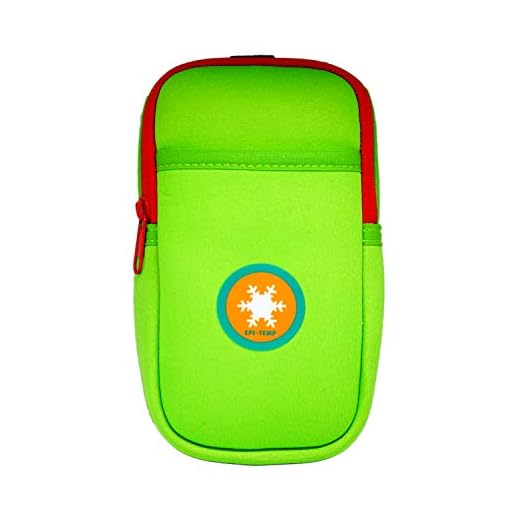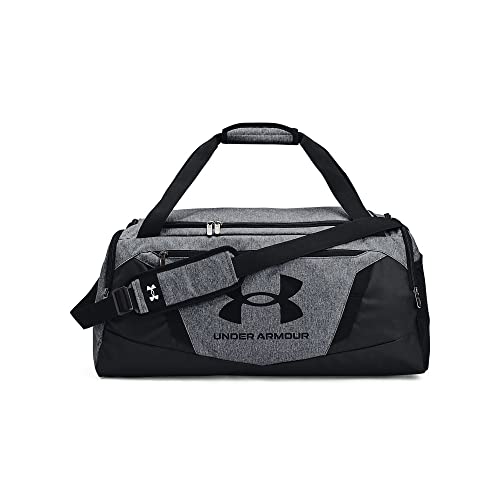

Travelers must ensure accessibility to necessary medical devices, particularly the auto-injector, during flights. It is recommended to keep these devices within your personal item or handbag for direct availability when needed.
Prior to your trip, verify the specific regulations of the airline you’re using, as policies may differ. It’s generally advisable to have the prescription label on the device, confirming its medical purpose. Additionally, carrying a doctor’s note can further streamline the security process.
At security checkpoints, inform the personnel about the presence of the medication in your bag. Most airports allow for these medical supplies to bypass standard liquid restrictions. Keeping the device clearly visible can expedite the screening process, ensuring a smooth journey.
Epipens in Personal Items
For travelers requiring auto-injectors for allergic reactions, these devices can be transported in personal items without restrictions. It is advisable to keep them in their original packaging, clearly labeled, to facilitate inspection by security personnel if necessary.
Check individual airline guidelines as some may have additional requirements concerning medications. It is often recommended to carry a letter from a healthcare provider explaining the need for the device.
Security screening may involve additional checks, so allocate extra time before boarding. Always have the injector readily accessible, especially during emergency situations.
In case of an international flight, research regulations of the destination country as certain regions may have stricter rules regarding medical supplies.
Understanding Airline Regulations for Medications
Traveling with necessary medications requires awareness of each airline’s rules regarding their transport. Medications, particularly those in liquid form, must conform to specific volume restrictions. Typically, each container should not exceed 3.4 ounces (100 milliliters), and all containers usually must fit into a single quart-sized clear bag. Certain substances may qualify for exceptions, especially if accompanied by documentation from a healthcare provider.
It is advisable to keep medication in its original packaging, which includes labels that indicate the patient’s name and dosage information. This can aid in expediting security checks while avoiding any misunderstandings about the nature of the items being transported.
Advance notification to the airline about the need for medication during the flight can facilitate any necessary arrangements. Carrying a doctor’s note, especially for specialized medications, can further smooth the process and clarify the need for such items on board.
Additionally, security personnel may conduct additional screening for medications, so be prepared for requests to inspect them. Always check the specific regulations of both the departing and arriving airports, as they may vary significantly.
Specific Guidelines for Auto-Injectors and Their Transport
Auto-injectors must be stored in their original packaging. This helps with identification during security checks. Ensure that all prescriptions accompany the device to facilitate a smooth screening process.
Inform security personnel about the presence of auto-injectors before the screening begins. This proactive communication can expedite the inspection and minimize delays.
Quantity Limits and Exceptions

Passengers may bring a reasonable quantity of auto-injectors for personal use. If traveling with multiple devices, it’s beneficial to carry documentation justifying their necessity. Airlines generally permit carrying a sufficient amount for the duration of travel, including unforeseen delays.
Temperature Considerations
Maintain the auto-injectors within a suitable temperature range to ensure functionality. Extreme temperatures can compromise the devices. During flight, store them in a location that avoids direct sunlight or extreme cold, such as an overhead compartment where climate is generally controlled.
Preparing Your Epipen for Security Checks
Keep your auto-injector in its original packaging. This helps identify the medication easily during screening.
Inform the security personnel about the presence of the device before the screening process begins. Making them aware can facilitate smoother handling.
Carry a doctor’s note or prescription that confirms the need for the item, which can further expedite the inspection.
Store the device in a separate, easily accessible section of your bag. This allows for quick retrieval if additional screening is required.
Avoid storing the injector in areas that may cause exposure to extreme temperatures, such as the trunk of a car or direct sunlight. Keep the medication at safe temperatures to ensure its efficacy.
For more information, consult airline policies or travel forums for experiences related to security protocols. Understanding your rights can boost confidence while traveling. For related resources, check out are rangemaster fridge freezers any good.
Consider packing an extra device in case of emergencies. This ensures readiness if your primary device is lost or damaged.
Lastly, familiarize yourself with the layout of airports where you’ll be traveling. Knowing where medical assistance is available can provide peace of mind.
Communicating with Airline Staff About Medical Needs
Clearly state your medical requirements as soon as you arrive at the airport. Inform staff at check-in counters and security checkpoints about your condition and the need for your injector. Being upfront facilitates a smoother experience.
Prepare documentation from your healthcare provider detailing your medical condition and the necessity of the injector. Carry this paperwork in a dedicated file for quick access. Airline personnel are often required to accommodate passengers with medical needs, and having documentation supports your requests.
When speaking with airline staff, use precise language. Describe your condition and how the injector is used. This assists them in understanding your situation and implementing necessary accommodations. Calmly and respectfully assert your rights regarding your medical supplies.
Engage in open dialogue. If you encounter resistance or misunderstanding, express your concerns clearly and provide additional information if needed. Request to speak with a supervisor if necessary, as higher-level staff might have more authority to address your needs.
Know the policies of your chosen airline. Familiarize yourself with their regulations concerning medical equipment before travel. This knowledge empowers you when discussing your needs and helps the staff assist you more efficiently.
Consider notifying your flight attendants once onboard. Inform them about your medical requirements to ensure they’re prepared to assist in case of an emergency. Provide them with instructions on how to use your injector, if necessary.
| Action | Description |
|---|---|
| Notify staff | Inform check-in and security about your medical requirements. |
| Prepare documentation | Have a letter from your healthcare provider outlining your condition. |
| Use clear language | Explain your condition and need for the injector simply and directly. |
| Open dialogue | Communicate your concerns respectfully and ask for support. |
| Understand policies | Familiarize yourself with the airline’s rules regarding medical supplies. |
| Notify flight attendants | Inform them of your medical needs once you are on the plane. |
Traveling Internationally with Epinephrine Devices: What to Know

Prior to your flight, research the regulations specific to your destination country regarding medications. Many places have rules on bringing medical items across borders. Always research local laws and customs concerning health supplies.
It is advisable to carry a letter from your healthcare provider outlining your medical condition and the necessity of your auto-injectors. This can facilitate discussions with airport personnel and may help if questioned during inspections.
Check with your airline for any additional requirements related to your medical supplies. Some carriers may have specific forms or protocols in place, and knowing these in advance can save time at check-in.
Pack your devices in an easily accessible portion of your bag. Consider using a medicine case that clearly identifies the contents, which helps expedite screening processes. Additionally, temperature is a factor; keep your medical supplies in temperature-controlled environments as much as possible.
When arriving at foreign locations, locate nearby pharmacies or hospitals, as well as understand local medical terminology related to your needs. This ensures you’re prepared in case of a medical emergency.
If you experience a delayed or changed flight schedule, confirm where you can obtain replacements or additional medical supplies at the airport. Familiarize yourself with nearby medical facilities based on your layover or final destination.
Lastly, have a backup plan. For long-haul trips, consider traveling with a friend or family member who understands your medical requirements. You may also want to invest in protective travel gear, including the best umbrellas wind resis to keep your supplies safe from environmental conditions.
For stress-free travels, ensure you utilize the best luggage for baggage handlers at airport, allowing you to transport your essentials conveniently and securely.
Alternatives and Additional Tips for Allergy Management While Traveling
Consider carrying a comprehensive allergy kit, which includes antihistamines, corticosteroids, and any prescribed medications. Having these readily available can provide timely relief in case of mild reactions.
Keep a detailed action plan outlining steps to take during an allergic reaction. Share this plan with travel companions, ensuring they understand how to help in case of an emergency.
Research the local area regarding allergen-free food options. Many restaurants now cater to specific dietary requirements, making it easier to avoid triggers.
Inform accommodation staff about specific allergies. This action prompts them to take extra precautions during meal preparation and cleaning processes.
Consider wearing a medical alert bracelet. This device can alert others to your allergies in an emergency, which may expedite treatment.
Pack snacks that are safe for consumption. Having a supply of allergy-friendly food prevents reliance on potentially unsafe options during travel.
- Use a personal carry case for medications to keep them organized and easily identifiable.
- Contact airlines in advance regarding allergy-related issues for potential accommodations.
- Carry copies of prescriptions and a letter from your doctor if traveling internationally to support your need for specific medications.
Identify local emergency services numbers at the travel destination. This knowledge can expedite help if a serious allergic reaction occurs.
Stay vigilant in monitoring food labels and ingredient lists. Even familiar brands may have different formulations in different countries.
Finally, practice strategies to manage anxiety and stress that can accompany traveling with allergies. Mindfulness and preparation can contribute to a more enjoyable experience.
FAQ:
Can I bring my EpiPen in my carry-on luggage when flying?
Yes, you can bring your EpiPen in your carry-on luggage when flying. It is recommended to keep the EpiPen in its original packaging and have a doctor’s note if possible, as this can help clarify its medical necessity to airport security personnel. Additionally, you should inform the TSA officer that you are carrying a medical device when you go through security.
Are there any restrictions on traveling with EpiPens internationally?
Traveling with EpiPens internationally can vary by country. Most nations allow travelers to bring medical supplies, including EpiPens, but it is important to check the specific regulations of your destination country. Having your prescription and a letter from your doctor can also facilitate a smoother experience at customs. Make sure to carry the EpiPen in its original packaging, which displays the prescription label, to avoid any misunderstandings. Always verify in advance to ensure compliance with local laws.







